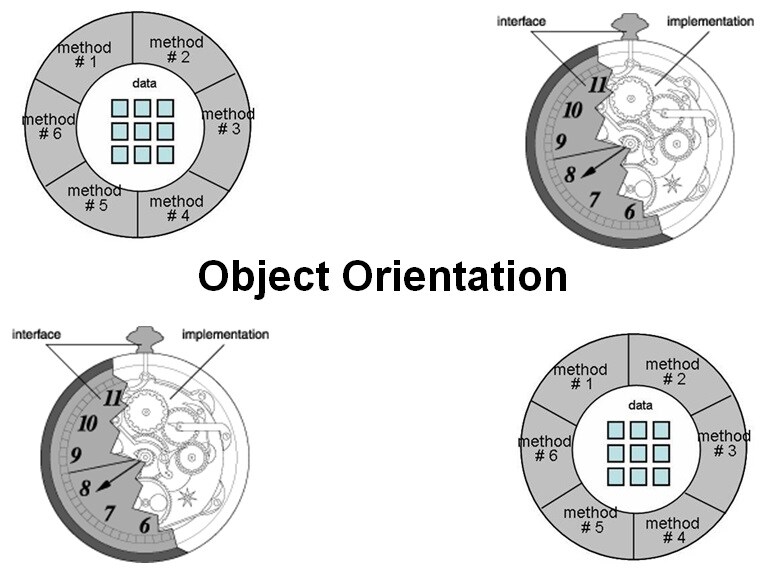-
Learning by doing
-
Trainers with practical experience
-
Classroom training
-
Detailed course material
-
Clear content description
-
Tailormade content possible
-
Training that proceeds
-
Small groups
In the course Object Orientation the fundamental concepts behind object oriented design and programming are discussed. Almost all modern programming languages support object orientation and for a good reason. Object orientation provides software that is more maintainable, is more suitable for reuse and is more in line with the real world.
The course starts with an introduction that explains how object orientation originated. Attention is paid to the software crisis and how you can regard objects as both domain and program concepts.
Next the characteristics of classes and objects are discussed. The course then covers what classes are and how objects can be instantiated. Also treated is how the responsibility for data storage and processing can be assigned to classes by means of attributes and methods.
Then well known object oriented concepts such as encapsulation, inheritance, polymorphism, interfaces and abstract classes are explained and demonstrated. The relationships that can exist between classes, such as association, aggregation and composition, are also treated.
Finally attention is paid to the standard methods and techniques of object oriented system design and modeling with UML.
The course Object Orientation is intended for individuals who want to become familiar with the basic concepts of object-oriented system development.
To join the course Object Orientation no specific skills or knowledge is required. General knowledge of system design is helpful to a proper understanding.
The theory is treated on the basis of presentation slides. Demos and exercises are used to illustrate the theory. The course material is in English. The course times are from 9.30 up and to 16.30.
Participants receive an official certificate Object Orientation after successful completion of the course.

Module 1 : Intro Object Orientation |
Module 2 : Classes and Objects |
Module 3 : Object Oriented Concepts |
| Characteristics of Software Software Crisis Object Oriented Paradigm Object Orientation in Software Process Domain Analysis Requirements Gathering Use Case Analysis Use Case Diagrams Object Orientation in Software Design Objects as Domain Concepts Objects as Program Concepts Reusability Object Oriented Programming Paradigm Unstructured Programming Procedural Programming Object Oriented Programming |
Abstraction in Object Orientation Procedural versus OO View Objects Classes Instance variables Methods and Operations Class or Instance? Identifying Classes Identifying Attributes Assign Responsibilities to Classes Identifying Operations Prototyping on paper CRC Cards Constructors Creating Objects Using Objects |
Object Orientated Concepts Other Key Concepts Encapsulation Access Control Class Fields and Methods Inheritance Inheritance Hierarchy Is a rule Method Overloading Method Overriding Polymorphism Polymorphism Example Abstract Classes Interfaces Interface Implementation Dynamic Binding |
Module 4 : Object Oriented Modeling |
||
| Object Oriented Modeling with UML UML Diagrams and Views Static Modeling Class Diagram Generalizations Avoid Unnecessary Generalizations Associations Identifying Associations Aggregation Composition Object Diagrams Associations versus Generalizations Interfaces Dynamic Modeling Interaction Diagrams Sequence Diagrams |
